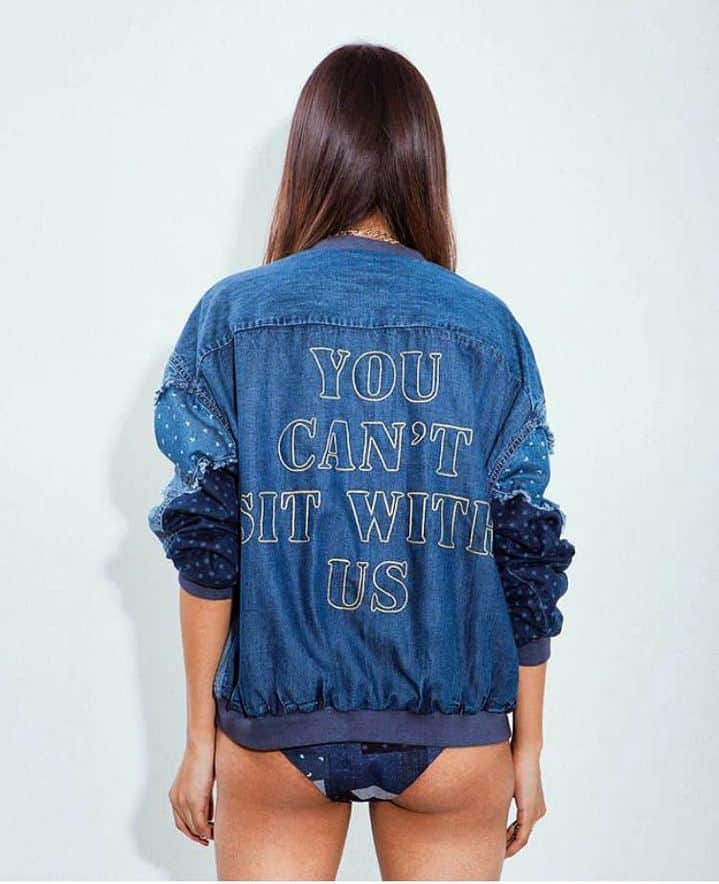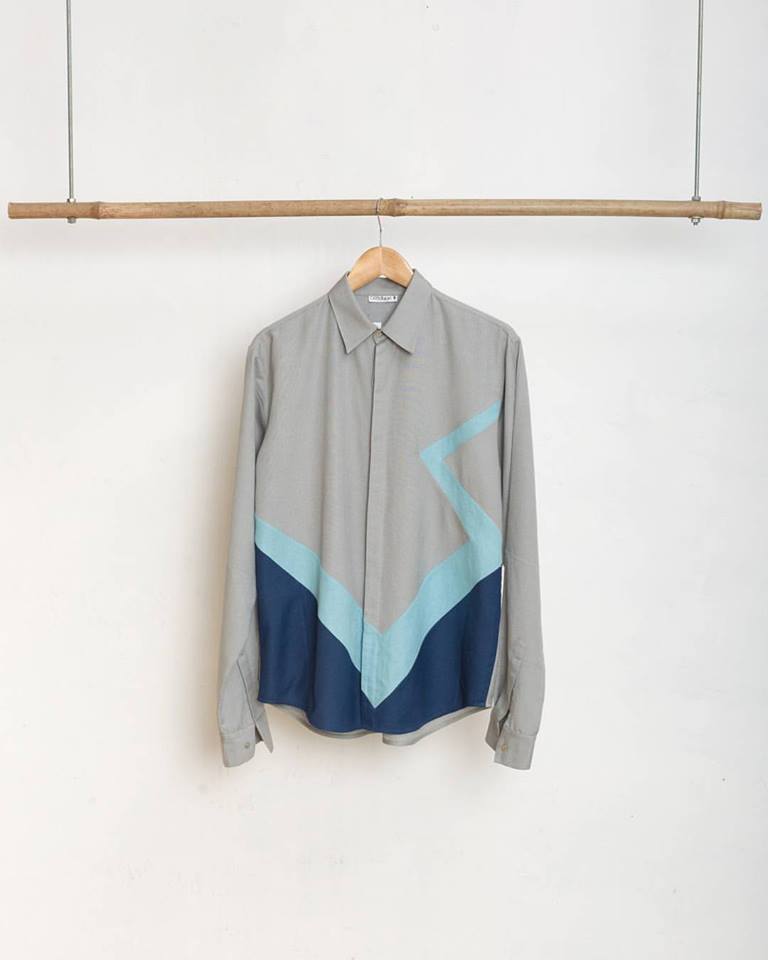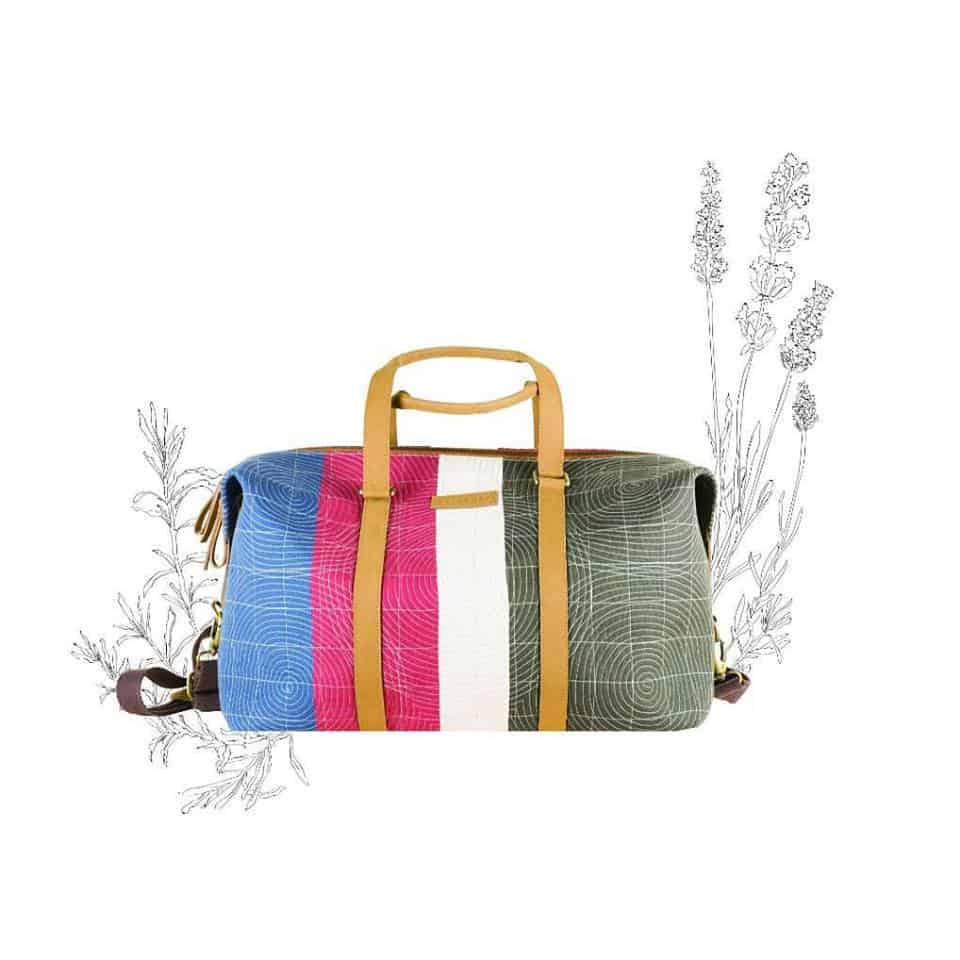First I’ll start with their process, because it’s completely backwards! Doodlage creates pieces from scrap textiles and materials found, therefore hunting for material first, and entering the design process second. This is how Doodlage pieces come to life. The team inspires everyone to get creative too, including their tailors and labour workers to instill a love and responsibility for ethical design and production. Now in over 40 stores across India, it’s super exciting to see such an innovative brand spreading so quickly in a country where global production is priority, and western culture and influence has taken over.
“Don’t forget your own values”, Kriti says, commenting on the effects of western culture constantly engaging consumers to consume more here in India. The country has a deeply rooted tradition of repairing and altering items when things need to be patched or resewn, but with such a mass wave of fast fashion and consumerism, it’s as if young and old have forgotten to stay true to tradition.
I like to think of Doodlage as that adventurous backpacker, always looking to explore new paths and share more goodness with the world. 90% of their fabrics are rejected by manufacturing units, while the remaining 10% include RCP (recycled cotton polyester), both post- and pre-consumer, as well as bamboo and corn fabric. They focus on zero waste pattern cutting, shredding their unsorted waste to create new textured fabrics for their home and accessory collections. And as if that wasn’t enough, the Doodlage team creates repair kits as their brand tags to promote the idea of repairing and altering wardrobe items.
In a country where ethical fashion education stems from H&M’s conscious collection, it’s evident that there is a lot of work to do. I can’t imagine a better person and team then Kriti and the Doodlage gang to take on such a mission. And with exciting new things on the agenda for next year, including a collaboration with Fashion Revolution (now with an office in Mumbai!), I can’t wait to see how Doodlage inspires others and expands across the continent (and beyond!).
See below for a Q & A with Kriti Tula, founder of Doodlage.
Why the name “Doodlage”?
Doodlage, is a word commonly associated with the art of doodling. It is something any and every individual can indulge in and no one judges or replicates them. Close to that concept, we at Doodlage believe in treating each piece with that special care. Everyday we sit with defected fabrics and scraps to create pieces that are similar to each other but not exactly the same. It is the USP of our products, these pieces are as unique as you.

How are you sourcing the textiles you upcycled for your collections?
Being one of the bigger production based countries, we have an abundance of garment, fabric and print manufacturers. Over time we have fixed sourcing centres for fabric scraps. We (also) get a few requests for fabric pick ups from smaller brands every once in awhile. We do try and incorporate these fabrics in ongoing collections.
What inspires the Doodlage brand and style?
The fabric and the cause that we work is our key inspiration which leads to specific style of garment creation and slogans that we work with. Once we get the fabrics for the season we start working on driving inspiration from the same based on the defects of the fabrics and the size of swatches.
We also aim to create styles which we can replicate to an extent which is why most pieces come with multiple panels. Overall style in aesthetic would be clean and layered with panels and embroideries given the nature of (the) raw material.
Tell us about your team behind the scenes sewing, tailoring and bringing your designs to life!
We are 3 partners; while I take care of the designs at Doodlage; the actual sales, business development, marketing etc. is completely taken care by Paras and Vaibhav. We now have two permanent designers and a bunch of ever-so-helpful interns who work with us. We do have freelance help for website maintenance and graphic design.

Our production floor is now 25 people strong and we occasionally tie up with other for profit social enterprises and non profit organisations to outsource our orders. They are all multi talented and have been trained to handle fabric defects with their own creativity. They now know what colours work well, how and what to embroider incase of a fabric issue etc.
How have you found locals have interacted with your sustainable brand in a country known for its excessive amount of textile waste?
I often mention in my interviews that our culture traditionally has been extremely conservative about the garments we buy and how we optimize the use of it. Hand me downs, alterations, garment donations were a very common practice. The recent boom in our economy, supported by extremely trend focussed marketing, has created this shift in buying behaviour over the past two decades. Back in 2012 when we registered our brand and started our dialog around ethical fashion, it was very difficult to make people care. Today, we have a niche that we interact with both in our country and globally and it’s growing every year.
We hope to continue our work on consumer education as we grow.










